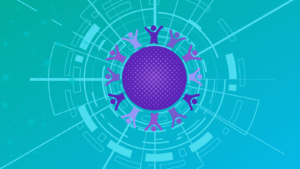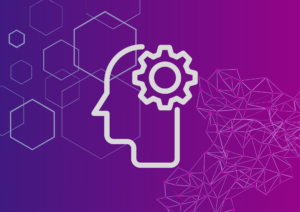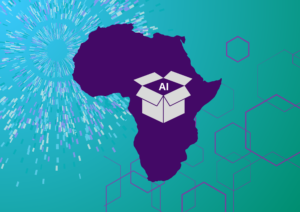The Datasphere Initiative has welcomed a new cohort of fellows for the year 2023-2024.
The nine fellows and three senior fellows will bring their own knowledge and research agenda to the fellowship, discuss how data governance is a fundamental element of Artificial Intelligence governance, and explore how data could be leveraged to reach the Sustainable Development Goals (SDGs). Fellows will address topics such as data quality, privacy, bias, transparency, and other elements of a responsible data governance framework as key elements to building and maintaining trust in AI technologies.
Carolina Rossini, Director of Policy and Research at the Datasphere Initiative, who leads this program, welcomes the new cohort:
“It’s an honor to announce and be joined by the incredible professionals and thought leaders who are joining our fellows cohort for the year 2023-2024. This year, we will delve into the critical connection between data governance and Artificial Intelligence Governance. Data governance, particularly in the context of data ethics, representativeness, and equity, plays a crucial role in ensuring responsible AI.”
Meet our senior fellows
Norberto de Andrade

Norberto de Andrade is a Professor at IE Law School, an Affiliated Scholar at Stanford Law School – Center for Internet & Society, and Founder and Global Lead at Open Loop. Norberto’s research lies at the intersection of law, public policy, and new technologies, with a particular interest in the ethics, governance, and regulation of artificial intelligence (AI).
Sue Hendrickson

Sue Hendrickson is Berkman Klein Center’s first Global Technology Governance Fellow, former Executive Director of the Berkman Klein Center, and a Lecturer at Harvard Law School. Her work focuses on the implications of AI and other digital and emerging technologies for democracy, human rights, and societal well-being and the establishment of governance mechanisms for the responsible, safe, and ethical development and deployment of technology.
John Wilbanks

John Wilbanks is a Senior Advisor to the Milken Institute’s Faster Cures. He was previously Head of Data at Biogen Digital Health, Chief Commons Officer at Sage Bionetworks, and Executive Director at Science Commons.
He is known for his work on informed consent, open science, and research networks. Scientific American featured him in “The Machine That Would Predict The Future” in 2011. Seed Magazine named Wilbanks among their Revolutionary Minds of 2008 as a “Game Changer”, and the Utne Reader named him in 2009 as one of the “50 visionaries who are changing your world”. He frequently campaigns for wider adoption of open-access scientific publishing and increased data sharing by scientists.
Meet our fellows
Nikesh Balami

Nikesh Balami is a civic entrepreneur, open data advocate, and tech researcher. He is the co-founder and CEO of Open Knowledge Nepal, and also manages the international open data network at the Open Knowledge Foundation.
He strongly supports open-source software and believes in the vision of Open Knowledge to empower citizens regarding technology usage and open data.
He is the founding member of Artificial Intelligence for Development, and Youth IGF Nepal and executive member of Free and Open Source Software (FOSS) Nepal community.
Yael Cervantes

Yael Cervantes is a first-year master’s student in the Technology and Policy Program at the Massachusetts Institute of Technology (MIT). Previously, he graduated from the Center for Research and Teaching in Economics (Mexico) with a degree in Economics. After graduating, he worked at the Central Bank of Mexico in the division of Economic Research and volunteered in NGOs focused on public policy.
Micaela Mantenga

Micaela Mantenga stands as an international authority on digital ethics, XR policy, and the intertwining of generative AI with creativity and copyright. She is recognized globally as a videogame scholar and activist who brings a powerful voice to the frontier of digital realities.
Her TED Talk “How to stop the metaverse from becoming the internet’s bad sequel?” garnered over 1.5 million views worldwide. She has presented across the globe at conferences, including GDC, TED, GamesBeat Summit, Ada Lovelace Festival, More Than Just a Game, and RightsCon.
Micaela currently serves as Chatham House’s AI Taskforce, and as a member of the World Economic Forum’s ‘Global Council on the Future of the Metaverse’. As an affiliate at the Berkman Klein Center at Harvard University, she started and is co-leading the “Video Game and XR Policy Working Group”.
Edith Milanzi

Edith B. Milanzi is a medical statistician and health data scientist from Malawi. She was recognized as a CIPHER Growth of Leaders of Tomorrow Fellow in 2021 and a member of the PENTA Network Early Career Researchers Working Group for pediatric HIV and infections research.
Edith founded FemAnalytica, a not-for-profit social enterprise whose core mission is to offer data science solutions to the social sector, with an emphasis on non-profit organizations and governmental agencies. She is the 2023/24 Women in Data Science Malawi Ambassador and current vice chairperson of the Organization for Women in Science in the Developing World (OWSD) Malawi chapter.
Nawal Omar

Nawal Omar is an experienced professional in African technology policy research. Currently serving as Technical and Data lead for the Global Index on Responsible AI and a Researcher and Information Systems Manager at Research ICT Africa.
She specializes in Ethical AI, data justice, and digital inequality, and provides valuable insights and recommendations to shape responsible technology policies in Africa. With a master’s degree in information technology, Nawal leverages her expertise to engage with stakeholders and policymakers actively, driving impactful change in the field of technology policy.
Lilian Olivia Orero

Lilian Olivia Orero is a researcher, lawyer, and advocate of the High Court of Kenya, and the Founder of SafeOnline Women Kenya (SOW-Kenya). With a career spanning over 5 years, she operates at the nexus of law, technology, and gender. Her research has led her to prestigious institutions, including the Berkman Klein Center for Internet & Society at Harvard University, the Centre for Information Resilience, and the Centre for Intellectual Property and Information Technology Law (CIPIT) at Strathmore University.
Lilian holds the distinction of being the youngest member of the Civil Society Regional Reference Group for the UN Women’s Spotlight Initiative Africa Regional Program (SIARP). Her numerous awards as a Multi-Award-Winning Researcher and Celebrated Writer underscore her commitment to advancing gender equality and creating secure digital environments.
Isadora Perez Peixoto

Isadora Perez Peixoto is a certified lawyer registered with the Brazilian Bar Association, specializing as a Technology Policy Advisor and holding certification as a Privacy and Data Protection Professional (CIPP/E).
Currently, she serves as a Policy Advisor and leads Privacy and Data Protection initiatives for the Brazilian Internet Steering Committee (CGI.br). In this role, she actively engages in national and international discussions, project development, and policy initiatives in Internet Policy. Additionally, Isadora is a Data Analytics Advisor for the Americas at Alteryx, specializing in Data Analytics technology that empowers organizations to harness data for transformative purposes.
Adam Zable

Adam Zable is the Director of Emerging Technologies at the Digital Trade and Data Governance Hub, a research institute affiliated with George Washington University in Washington, D.C. His work and research interests focus on the intersection of emerging technologies, data governance, and democracy.
Adam holds a Master of Public Policy from the Willy Brandt School of Public Policy in Erfurt, Germany. He earned his bachelor’s degree at Binghamton University in New York, with a major in Philosophy, Politics, and Law.
Entering its third year, the Datasphere Fellowship Program reaffirms its commitment to building a global, interdisciplinary, innovative, and connected peer community of established and emerging data governance professionals who will dedicate their work to unlocking the value and benefits of data for all.




